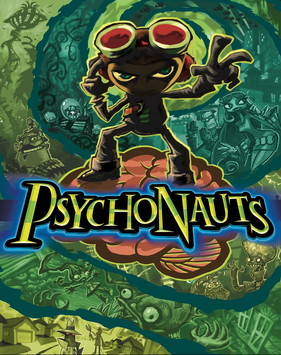

But it just doesn't really work for me, as they mostly come off as mildly irritating and occasionally humorous. I think maybe they're there to help develop Raz's character, as in the beginning it seems they're meant to give him anxiety or make him question himself more. Several of them were static throughout the entire game, and there isn't really much for me to engage with as a player, except to just find them and briefly talk to them. It just doesn't feel like the interns had a real point. I even enjoyed Bobby finding love after being an ass to Raz the whole game. Vernon's monotone storytelling, Clem and Crystal's optimism to doomer plot, Mikhail becoming Maloof's bodyguard - I just loved watching all of it happen. It really motivated me to find all their brains towards the end just so I could see what else they could get up to. How are you gonna haze a literal 10-year-old?īut honestly, the campers were given so much love in how they each had intertwined stories being told throughout the game that the player could just stumble upon if they so choose. My main reason for this is while the campers felt like a ragtag group of misfits all piled together in a place where they can be weird together, the interns just rub me the wrong way from the very start. They absolutely pale in comparison to the campers. I just feel like they were doing too much here and it didn't all gel very well. I even like the last level, Fatherland Follies, a lot - though I am partial to things that poke fun at the whimsical dystopia of theme park rides. PSI King's Sensorium, Bob's Bottles, Cassie's Collection are all wonderful levels, some of them dealing with some pretty heavy stuff in interesting ways. There's some good stuff here too, don't get me wrong. Which isn't the worst thing, sure, a lot of the visual design in those levels are cool, but to me it makes them a lot more forgettable than the levels in 1. Loboto's Labyrinth, Hollis' Classroom, a couple of Ford's minds, Lucretia's Lament - all these feel like they're just there to drive the plot. Plus, like the Brain Tumbler Experiment in 1, a lot of the levels in 2 feel more plot-driven than conceptual. It feels like the designers thought a cooking show in particular would be fun and designed the level around that, instead of thinking what the best representation of Compton's mind would look like. You could honestly use any "game show" format to tell a similar kind of story. I've read explanations that this mind deals with co-dependency and anxiety, and while I agree, vaguely connecting those psychological conditions to a cooking game show isn't very interesting. My best case for this would be Compton's Cookoff.

My best explanation for how it feels is like in 1, they thought of the characters first and built levels around what their minds would look like, but in 2, they thought of the look of the levels first and vaguely connected parts of them to the characters they were supposed to represent. In 2, the design feels lackluster in comparison. The biggest compliment I can give about the levels in 1 is that I understood the characters whose minds I explored even better after going in.


Or the fact that Linda the Lungfish, truly more scared of you than you are of it, sees you as a giant monster in her own head. For example, Edgar hiding his troubled high school life in the sewers underneath his constructed multicolor city. I liked how there were design choices in each level that reflected struggles the characters were dealing with. Not even just talking about Milkman Conspiracy, but I would say nearly every single level in the first game is so wondrously creative and cohesive. For me, the best thing about the original Psychonauts was by far level design. Don't get me wrong, I definitely enjoyed Psychonauts 2 and am so glad to finally have a sequel to my favorite game of all time.īut I can't help but feel how the game is lacking in some aspects.


 0 kommentar(er)
0 kommentar(er)
